PXG Battle Ready II Brandon Putter Review
Should the new and improved PXG Battle Ready II Brandon putter be considered for your bag? Sam De’Ath puts it to the test to find out
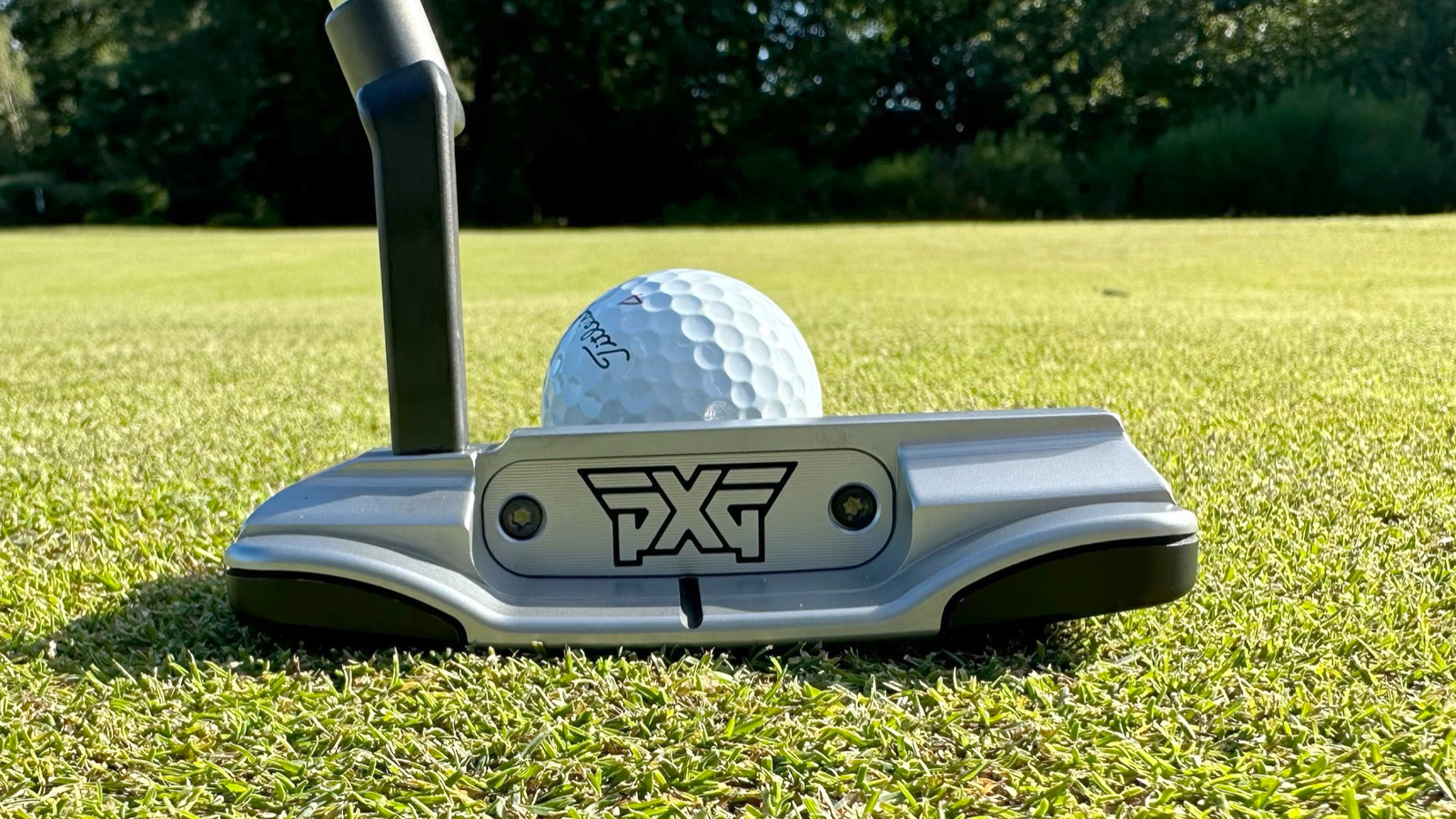
A reliable bladed putter that will particularly suit those who prefer a firmer feel. The face technology certainly helped the ball roll consistently in testing and it was forgiving enough for its modest size.
-
+
Produced a very quick, smooth roll
-
+
Looks superb behind the ball
-
+
Lots of custom options when ordering online
-
-
The ‘tinny’ sound on longer putts may put people off
Why you can trust Golf Monthly

There’s no denying the fact that models like the Ping Anser and Scotty Cameron Newport have set a high bar among the best putters on the market. However this new look PXG Battle Ready II Brandon putter has been designed with the intention of challenging the established leaders of the best blade putters. While on the exterior this Brandon putter looks very traditional, there is an above-average amount of technology that has been implemented here to improve the sound, feel and performance over the previous generation Brandon putter.
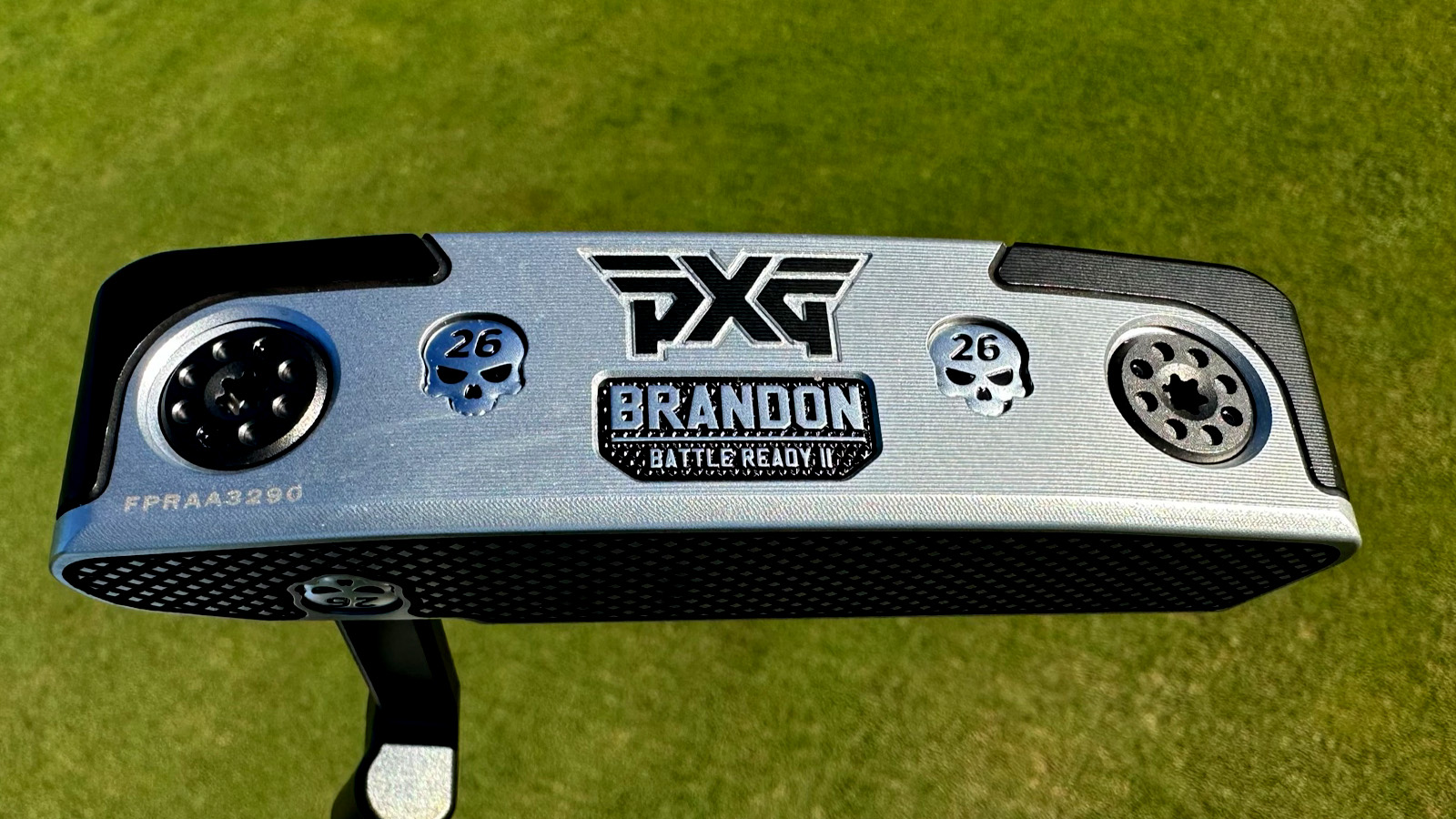
From a looks perspective, I think this may be my favourite out of the new nine models offered in the Battle Ready II series from PXG. The platinum body is beautifully balanced out by flashes of the traditional PXG black on the hosel and rear detailing. The iconic skulls with the number 26 can be found on all of the new range, which are a nod to PXG Founder Bob Parsons service with the 26th Marine Corp Regiment during the Vietnam War.
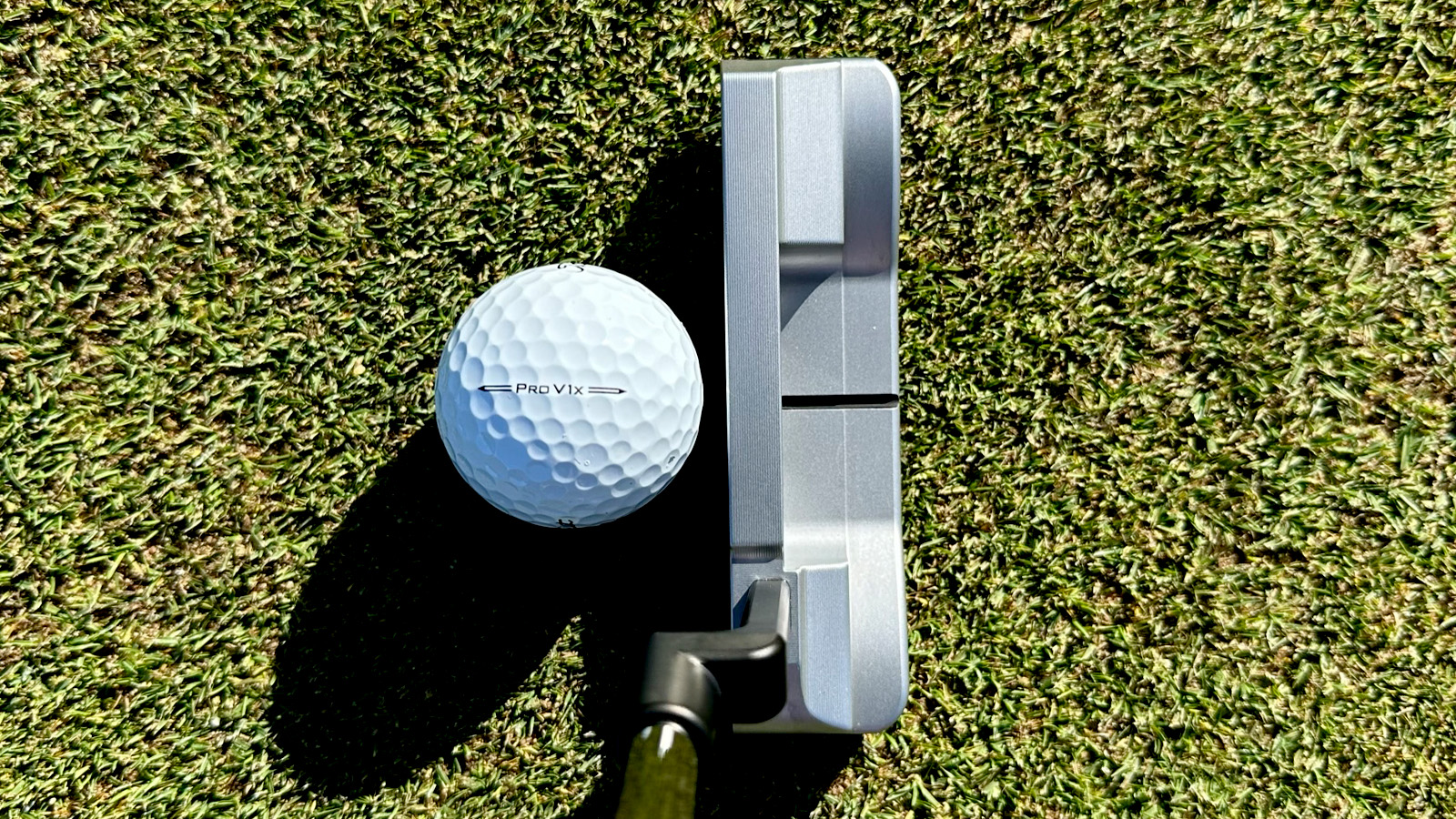
PXG Battle Ready II Brandon Putter at address
One of the cool things about this putter is the ability to customize it via the PXG website. There are four hosel options, as well as the choice of seven different PXG grips and the ability to upgrade to PXG’s M16 putter shaft. The grip I selected was the PXG Pistol II putter grip, which is an oversized, soft feeling grip that I actually really enjoyed. The M16 shaft is said to play 26 percent stiffer than a standard steel putter, reducing face rotation and therefore holing more putts. I can’t say I noticed this at play - I feel I may need more help than just a stiffer shaft for that to happen!
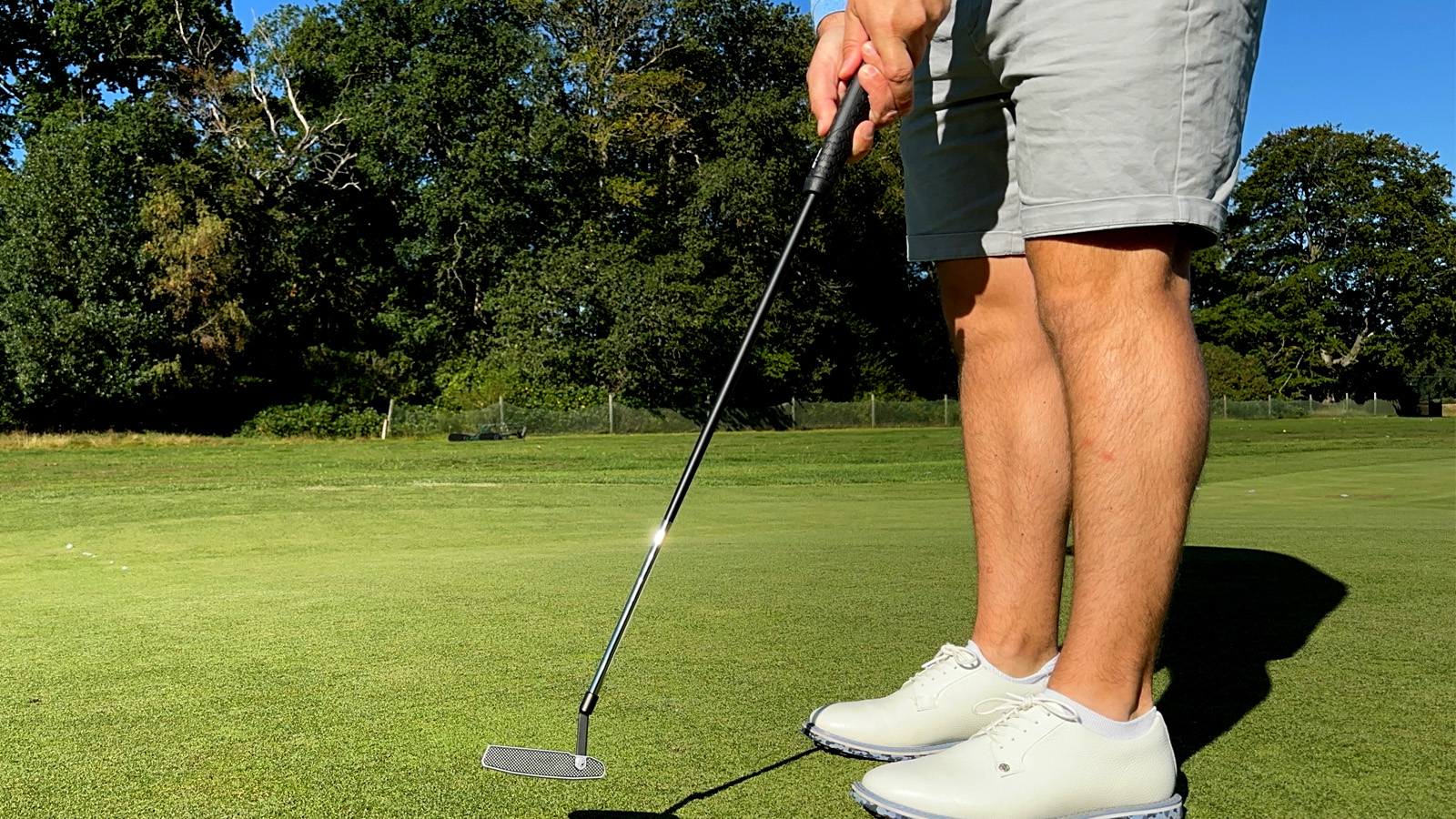
Sam De'Ath rolling the PXG Battle Ready II Brandon Putter
The pyramid designed face on all of the Battle Ready II putters is extremely thin, this is down to the hollow body construction and S COR technology used in these putters. The weight has been repositioned towards the perimeter of the putter to increase MOI and stability in the head when making a stroke. While I did feel as though the putter rolled the ball particularly well from inside 20 feet, I thought the S COR technology - a lightweight polymer injected into the putter to join with the face to reduce vibrations and sound, didn’t do too much when I faced putts outside the 20-feet range. The ball felt fairly firm off the face and the ‘tinny’ sound is one you don’t often hear on a solid body, milled face putter like some of the best Scotty Cameron putters have.
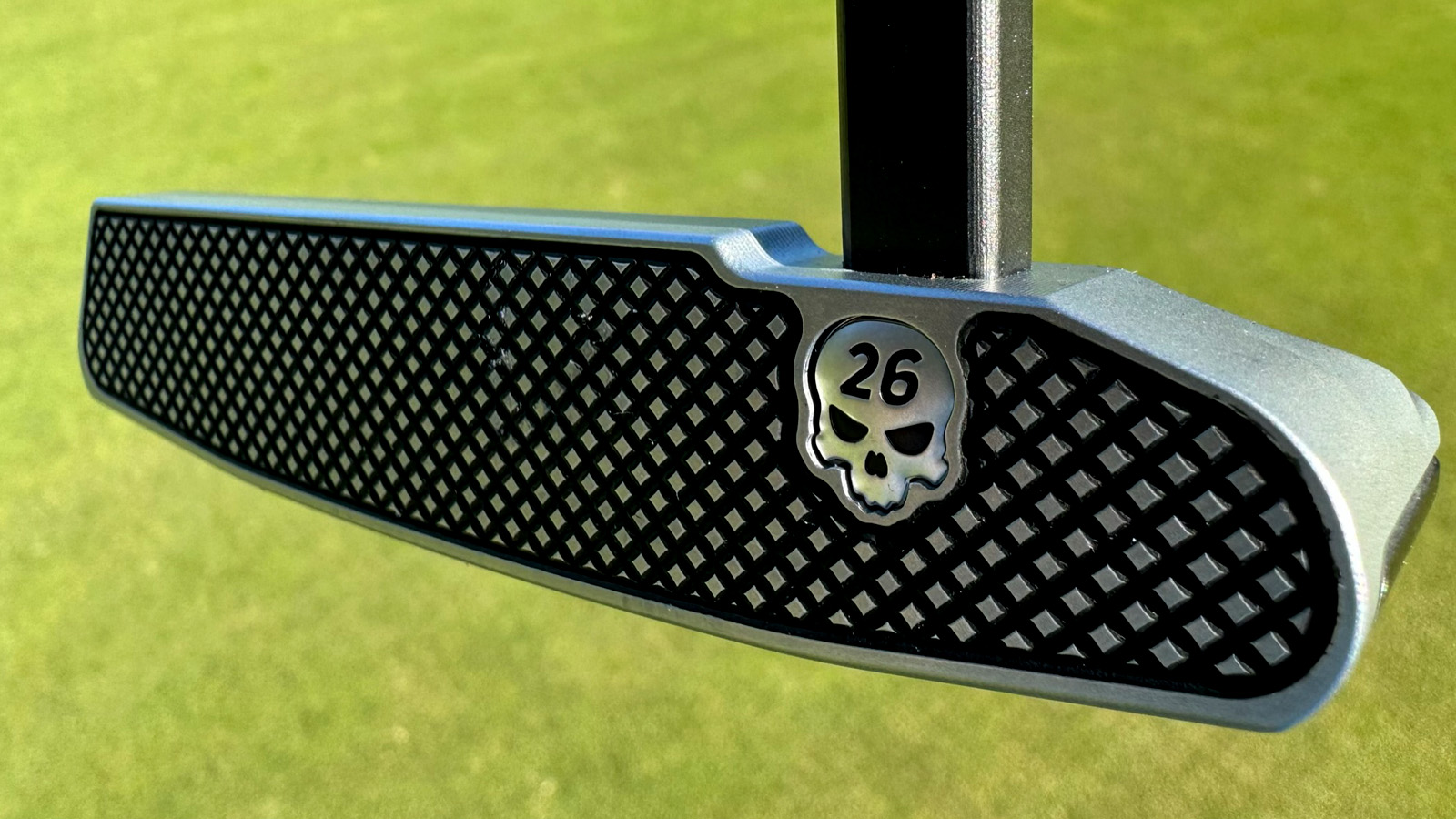
The pyramid milled face on the PXG Battle Ready II Brandon Putter
When being fitted at a PXG fitting center there will be the option to take out and replace the interchangeable weights in the bottom of the putter for heavier or lighter ones to suit your specific stroke. Despite the putter feeling well balanced as standard, there is no current option to change the weights that come as standard when ordering online, something a lot of people may look for before spending a good amount of money on a premium putter.
Overall I do think the PXG Battle Ready II Brandon is a step-up over its predecessor and is certainly worth considering if you prefer a blade shaped putter and one that produces a fairly firm feel off the face. Perhaps you use a soft golf ball, which would marry up well. While it was accurate and forgiving as a whole, it won't provide the help of some of the most forgiving putters out there. If you are seeking the same shape as the Brandon, but one producing a slightly softer feel, consider some of the best Odyssey Putters like the Odyssey Tri-Hot 5K Number 2.
Get the Golf Monthly Newsletter
Subscribe to the Golf Monthly newsletter to stay up to date with all the latest tour news, equipment news, reviews, head-to-heads and buyer’s guides from our team of experienced experts.

Sam has worked in the golf industry for 14 years, offering advice on equipment to all levels of golfers. Sam heads up any content around fairway woods, hybrids, wedges, putters and golf balls but also writes about other equipment from time to time.Sam graduated from Webber International University in 2017 with a BSc Marketing Management degree while playing collegiate golf. His experience of playing professionally on both the EuroPro Tour and Clutch Pro Tour, alongside his golf retail history, means Sam has extensive knowledge of golf equipment and what works for different types of golfer.
Sam’s current What’s In The Bag?
Driver: TaylorMade Qi35 9°
Fairway Woods: TaylorMade Qi35 15°, Srixon ZXi 18°
Irons: TaylorMade CB (6-PW) P770 (4-5)
Wedges: Titleist Vokey SM10, 50°, 54°, 60°
Putter: Kevin Burns 9307
Ball: Titleist Pro V1x
-
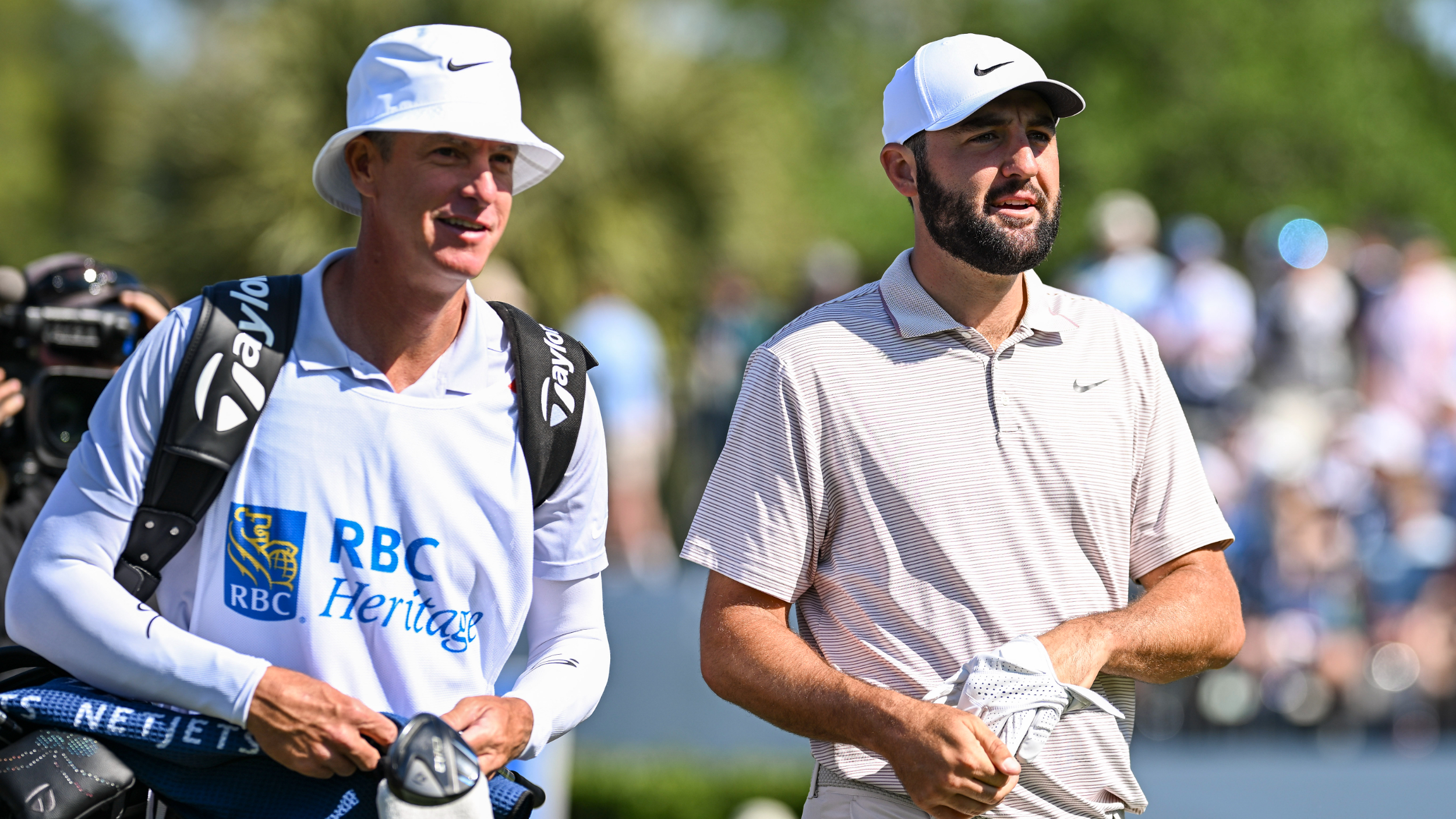 How Much The Winning Caddie Earns At The RBC Heritage
How Much The Winning Caddie Earns At The RBC HeritageThe latest of the PGA Tour’s signature events offers a huge prize for the winner, and the caddie alongside the champion is due for a big payday too
By Mike Hall Published
-
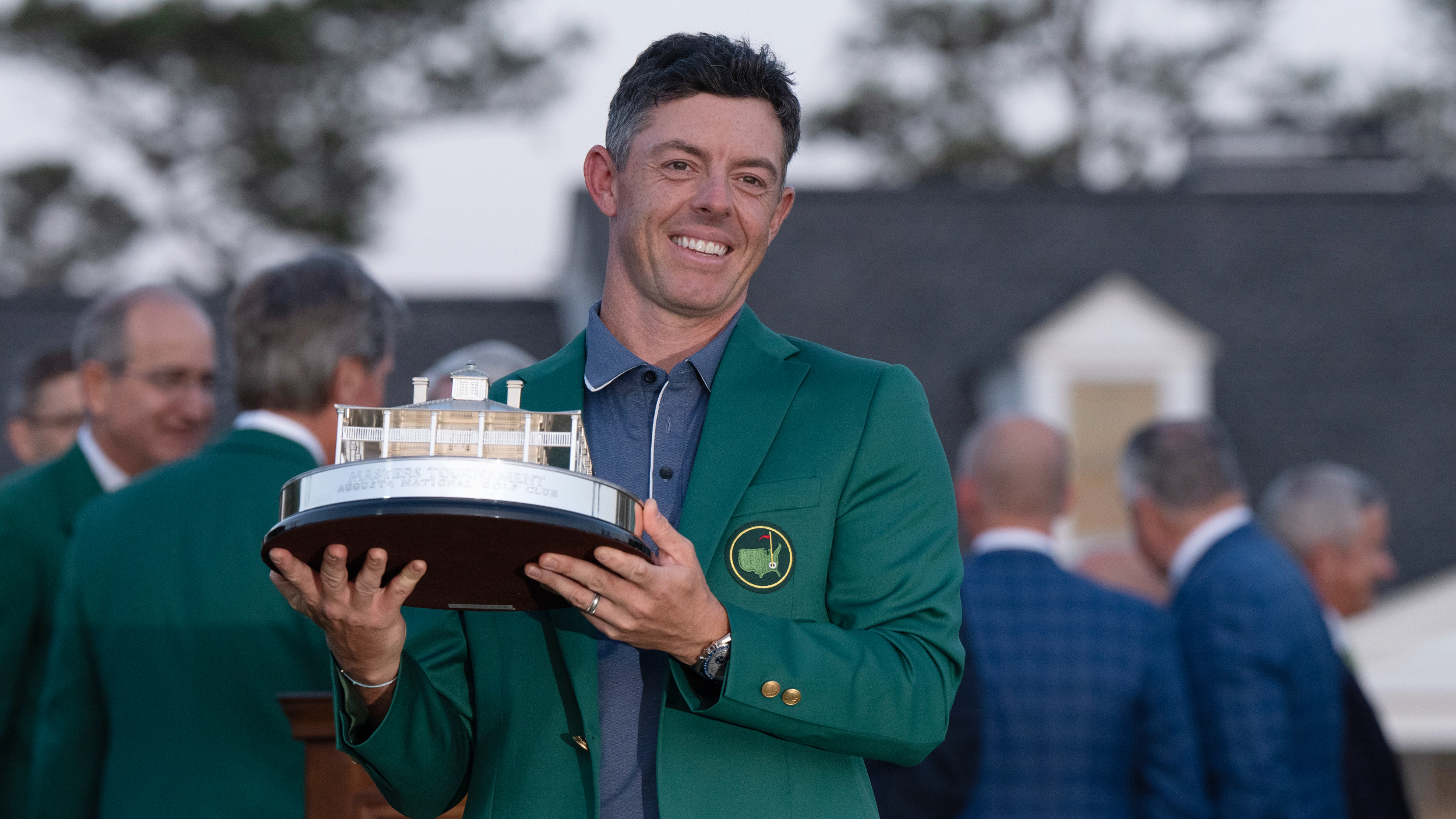 Rory McIlroy Career Grand Slam Celebrated With Royal Mail Postmark
Rory McIlroy Career Grand Slam Celebrated With Royal Mail PostmarkRory McIlroy's Masters win, which made him the sixth player to complete the career Grand Slam, was celebrated with a special postmark by the Royal Mail
By Mike Hall Published
-
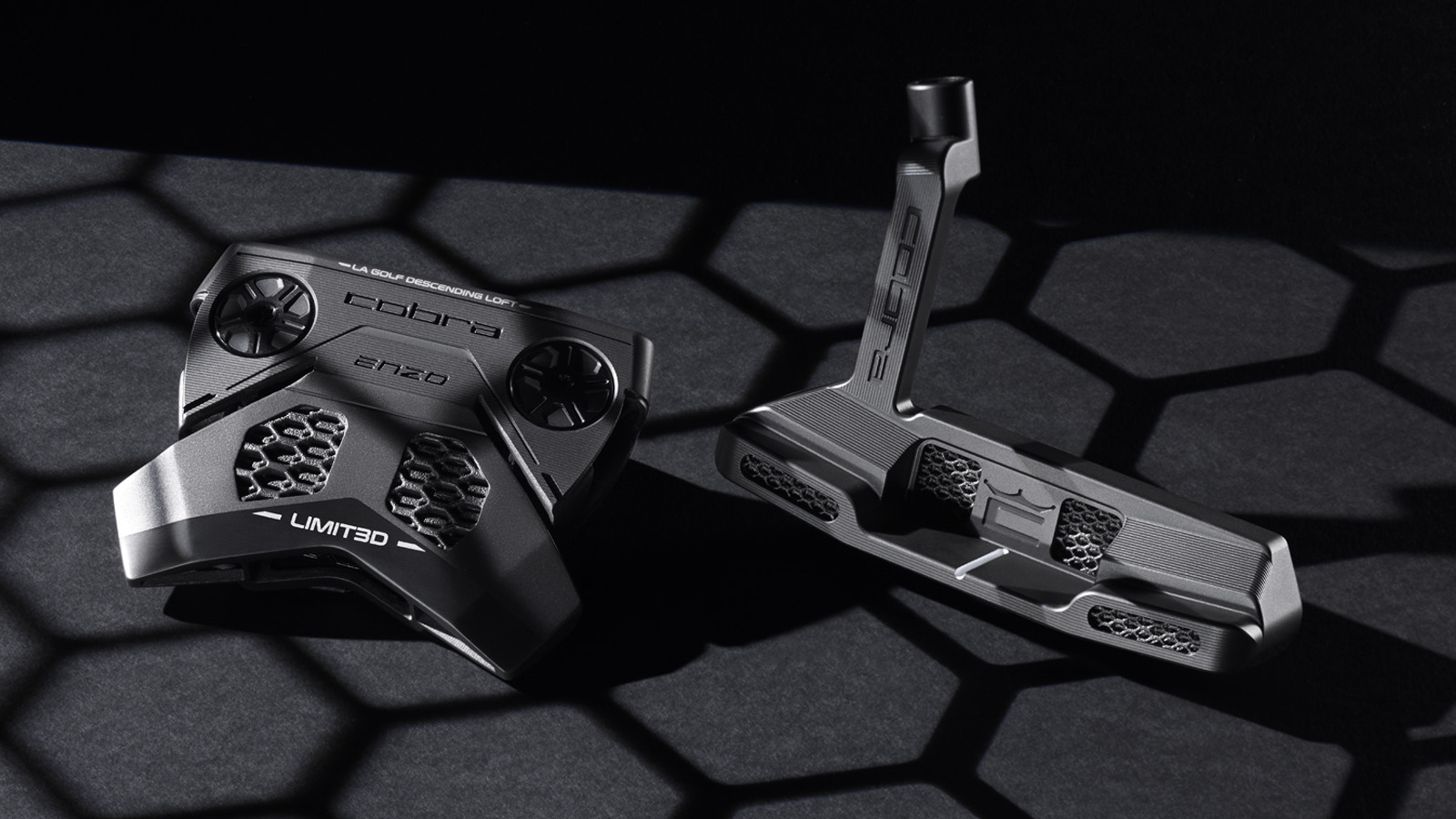 Has Cobra Just Created The Most Advanced Putter Range Ever?
Has Cobra Just Created The Most Advanced Putter Range Ever?Cobra launches two new LIMIT3D 3D printed putter models that blend premium style with modern technology. Here’s what we know so far…
By Sam De'Ath Published